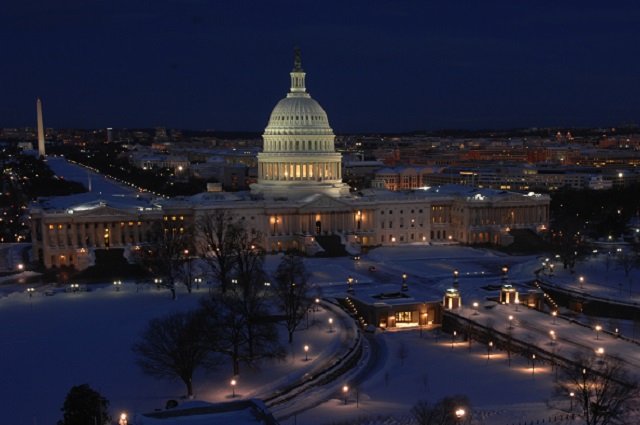News Story
(Below is a backup copy of the original article with as much credit to the publisher as well as the author that we can provide. By no means do we mean to violate any copyright laws. This page is appearing because someone indicated that the original story was unavailable.)
Yes, Virginia, the governor really can use the National Guard to enforce gun control
With dozens of Virginia counties declaring themselves Second Amendment sanctuaries, some Democratic lawmakers have said the governor should use the National Guard to enforce future gun control legislation — but can he?
Virginia Democrats, who control the legislature and governorship, have proposed several measures, including an “assault weapons†ban, universal background checks, and a red flag law. In response, 75 counties vowed they will not enforce future gun control legislation. Virginia Democratic Rep. Donald McEachin told the Washington Examiner on Thursday that Gov. Ralph Northam “may have to nationalize the National Guard to enforce the law†if local authorities refuse to do so themselves.
The president, as commander-in-chief of the armed forces, is the only person who can nationalize the Guard, but state governors have the latitude to use it to enforce state law, legal experts said.
“Until nationalized, it’s a creature of the state. So that’s what leads me to believe that, yes, the governor can activate the National Guard to enforce even a state law,†Gary Solis, a military law professor at Georgetown University, told the Washington Examiner.
Amy Swearer, a legal policy analyst who works on gun control issues, agreed that the governor has the right to use the Virginia National Guard to enforce the law, though it would break from past mobilizations.
“When you look at the historical reality of when governors or presidents have mobilized the National Guard, it has been to enforce the rights of citizens when they were being infringed upon,†Swearer told the Washington Examiner. “But to suggest the National Guard would be brought in to otherwise peaceful jurisdictions to enforce restrictions on constitutional rights, that would be completely unprecedented in terms of how the National Guard has been used when it’s mobilized to restore law and order.â€
Swearer doubts that the political debate will come to such drastic measures like troops going door-to-door or citizens being sworn in as law enforcement officers.
“I don’t necessarily foresee it coming to that situation where essentially you see this political back and forth of state and local officials using their respective authority to get back at each other,†she said.
The Posse Comitatus Act places strict limitations on how the military can be used to enforce the law, but the National Guard’s unique status as a state unit is an exception. Many governors have activated the National Guard to enforce the law in the past.
In 1954, Arkansas Gov. Orval Faubus directed the National Guard to “preserve the public peace†by turning away black students during the court-mandated integration of Little Rock’s Central High School. President Dwight Eisenhower reversed that decision by federalizing the state’s entire guard, ordering it to protect the students.
National Guard units also have been mobilized during the Baltimore riots in 2015, after Hurricane Katrina devastated New Orleans in 2005, and following protests in Charlottesville in 2017.

